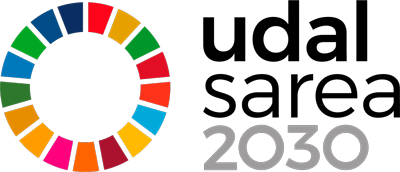- Txakoli Wine Production at the Urdaibai Biosphere Reserve: Sustainability and Soil Protection (Itsasmendi) (Language: English and Spanish)
Tour guide: Garikoitz Ríos, technical director of Itsasmendi Winery.
The making of Txakoli wine is one of the identifying traits of Basque culture and a socio-economic activity embedded in the territory. The sustainability principles at the wineries you will visit play a key role in protecting the soils used to grow the vines for this typical wine of the Basque Country; the winemaking is traditionally family based and uses mainly native grape varieties, protected by Denomination of Origin and enjoying great international acclaim.
Schedule: 15:45 – 19:15
- Txakoli Wine Production at the Urdaibai Biosphere Reserve: Sustainability and Soil Protection (Berroja) (Language: Basque and Spanish)
Tour guide: Jose Ángel Carrero, owner of Bodega Berroja.
The making of Txakoli wine is one of the identifying traits of Basque culture and a socio-economic activity embedded in the territory. The sustainability principles at the wineries you will visit play a key role in protecting the soils used to grow the vines for this typical wine of the Basque Country; the winemaking is traditionally family based and uses mainly native grape varieties, protected by Denomination of Origin and enjoying great international acclaim.
Schedule: 15:45 – 19:15
- Boat Trip along the Bilbao River Estuary: Past and Present of Land and Territory Regeneration (Language: Basque and Spanish)
Tour guide:
Javier Puertas, president of the Basque Association of Industrial Heritage.
Jose Eugenio Villar, vice president of the Basque Industrial Heritage Association.
Bilbao River Estuary was the backbone of Bizkaia’s port, mining and industrial activity for decades. The main artery of the capital of Bilbao and of its metropolitan area, Gran Bilbao, has undergone a far-reaching transformation in recent years; that has greatly contributed to a change of paradigm in the management and restoration of land with a significant environmental burden from its industrial past.
Schedule: 15:45 – 18:00
- Begoña Cemetery: Respect as Inspiration to Design a New Common Space (Language: Basque and Spanish)
Tour guide: Anartz Ormaza, architect at TEO Arkitektura and collaborator with the Aranzadi Science Society Aranzadi Zientzia Elkartea.
Begoña cemetery dates back to the 19th century, when the Begoña anteiglesia or parish district was independent from the charter city of Bilbao. It was one of the capital of Bizkaia’s most important cemeteries – and the main one of the Begoña neighbourhood – during the 20th century and into the early 21st. However, due to different circumstances, it has been in a state of neglect for many years now. The historical memory value of this cemetery makes it a place to better understand the history of the Basque Country, but also to see how a change of use can respect and enhance the elements that have shaped this spot over time.
Schedule: 15:45 – 18:15
- Zorrozaurre Island; a City Building Challenge (Language: Basque, Spanish and English)
Bisitaren gidaria: Juan Carlos Sinde, Manager of the Zorrotzaurre Management Commission.
The urban regeneration project of this part of Bilbao with a great industrial past – initially designed by the architect Zaha Hahid – has transformed the Zorrozaurre peninsula into an island where residential uses will coexist alongside non-polluting businesses, cultural and social amenities, along with areas to be enjoyed by citizens. The Zorrozaurre regeneration is a comprehensive project based on sustainability criteria; the aim is to restore a currently degraded area where different aspects of sustainable management converge, and which include restoring contaminated land, introducing temporary uses of empty plots, reusing old industrial premises, and climate change adaptation actions.
Schedule: 15:45 – 18:15
- La Arboleda (Meatzaldea): Land and Landscape Shaped by Mining (Language: Basque and Spanish)
Tour guide: Peio Presa Tejero, Ekoetxea Meatzaldea.
La Arboleda was a mining town where the iron ore for the Sestao blast furnaces was quarried. Visiting La Arboleda is a trip back in time to a mining past that began with the Romans. The old open pits are now artificial lakes surrounded by green leisure and recreational areas, while also being an opportunity to showcase the historical legacy still to be found there. In addition to learning about part of the Basque Country’s industrial past, this field trip seeks to highlight the specific traits of a landscape shaped by mining.
Schedule: 15:45 – 19:30
- Soil health: a cornerstone of a sustainable agricultural and livestock farm: (Errotik livestock farm) (Language: Basque and Spanish)
Tour guides:
Kepa Aguirregoikoa, Errotik Etxanoko Gaztaie.
Melissa Comellas, responsible for Agriculture projects at EIT Food.
Nerea Mandaluniz, Researcher of the Animal Production Area at Neiker. Basque Institute of Agricultural Research and Development.
The richness and quality of the soil greatly influence the quality of what we eat. Therefore, knowing the characteristics of the farmland, the biodiversity living there, along with the methods used to offer greater quality and sustainability in the final product that reaches the consumer’s table, is fundamental. This type of management is really important to maintaining soil fertility, restoring nutrient, energy and water cycles, as well as guaranteeing the production of sustainable, high-quality food. In addition to being an empowerment tool for the ranchers themselves.
Schedule: 15:45 – 19:30








